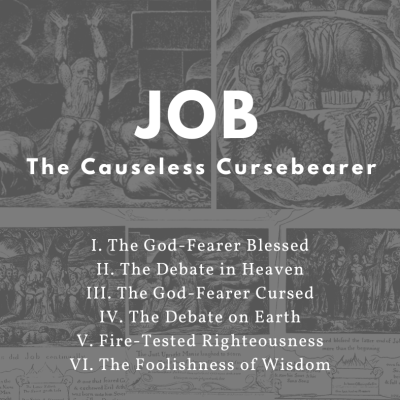Job is not about you. Job is not about me. Job is about Jesus. So when we come to this book we need to say, “Show me Jesus.” It is about Jesus and his righteousness, Jesus and his curse-bearing, Jesus and his defeat of the devil, Jesus and his acquisition of glory. That’s what Job is all about.
Outline:
I. The God-Fearer Blessed
II. The Debate in Heaven
III. The God-Fearer Cursed
IV. The Debate on Earth
V. Fire-Tested Righteousness
VI. The Foolishness of Wisdom




0 Comments